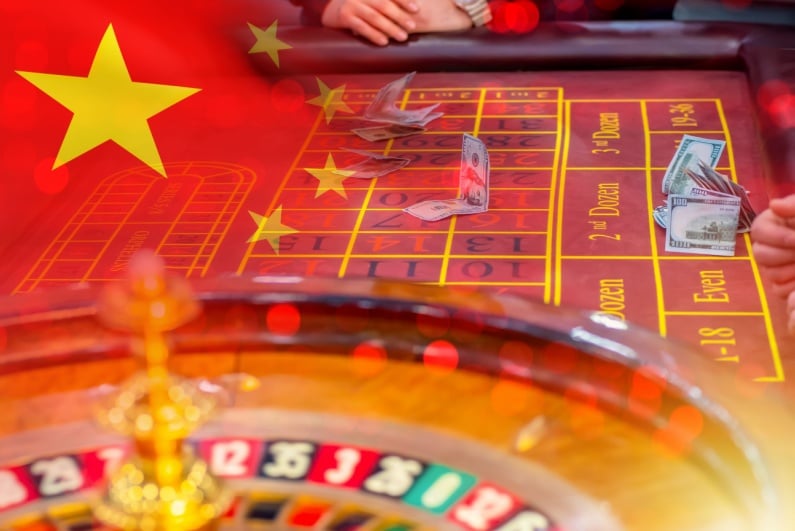Chinese New Year is here, and it is time to enter the Year of the Snake. As we do that, it’s important to remember how China has influenced the development of gambling across the globe.
While the huge nation has a ban on gambling everywhere except Macau, it’s actually the birthplace of a number of traditions that we still utilize in casinos today.
VegasSlotsOnline News has searched through the history books to provide the clearest account of how China has influenced gambling. Check out the story that begins all the way back in the 2300s BC.
Casino gambling
Gambling has a history of more than 3,000 years in China. However, it has almost always held negative connotations, with many dynasties in China’s past attempting to ban it. Initially, Chinese gambling was an activity enjoyed by the nobility and wealthy class, but this soon filtered down until all levels of society were taking part, much like we see in markets across the world today.
a cognitive, mind game played by the nobility
Luibo is the first example of a gambling activity that we find in Chinese history. This was a cognitive, mind game played by the nobility, in which players had to employ strategies to win. There was often a monetary element to these games, although this was not the primary purpose of playing unlike typical casino gambling today.
This game eventually gave way to other quicker games which were more suitable to wagering. This included Pitch Pot and Ma Diu, which is an earlier version of present-day Mahjong. Monetary risk became the main purpose of these games.
By the Ming and Qing Dynasties (1616AD to 1911AD) gambling was truly widespread. Card games had been invented and Mahjong had become what we know it as today. At the time, Wang Yiyuan, a scholar from the period, described people “playing day and night, and the whole country appeared to be crazy.”
Now China’s casino gambling takes place in Macau, the Las Vegas of Asia. In fact, while it might be compared to Las Vegas, it actually far surpasses its US counterpart in terms of revenue. Although Las Vegas beat Macau in gross gaming revenue due to COVID restrictions in 2022, the Chinese gambling hub regained its crown in 2023, beating Vegas by $6.8bn. Preliminary figures suggest that gap widened much further in 2024.
Sports betting
Not only was China the birthplace of casino-like gambling, sports betting also found a clear place in society. This began around the time of 770BCE to 221 BCE, when the rich began to gamble on horse racing. In one famous recorded account, military general Tian Ji and the King of Qi bet together on the activity, even classifying horses into different grades based on their speeds.
the first recorded instance of gambling on a type of soccer
It developed more during the Han Dynasty 202BCE to 220AD, when Han Xin is credited with the invention of Kickball for war soldiers. It is the first recorded instance of gambling on a type of soccer, in which spectators wagered on the result.
Meanwhile, in more rural communities gambling on animals became common. Farmers would gamble on games involving animals and insects, including dog races. In the most violent example, cock fighting emerged as a popular source of betting. The practise still exists in some areas around China and the rest of Asia.
During the Tang Dynasty, between 618AD and 907AD, even cricket fighting supposedly came into fashion. Jia Sidao, who was Prime Minister of the Song Dynasty, allegedly enjoyed the pastime so much that he earned the nickname the “Cricket Prime Minister,” while Emperor Xuande of the Ming Dynasty was called “Cricket Emperor” for the same reason.
Crazy tales
If these cricket tales have whet your appetite then there is plenty more where that came from. There are a multitude of interesting stories from China’s past which are related to the country’s love affair with gambling.
A narrative history of events from the eighth to fifth centuries BCE in China relates a notable instance of cheating in cock fighting. Two high ranking officials, Ji Pingzi and Hou Zhaobo, both applied some sneaky tactics after betting on a cockfight. Ji applied mustard to the wings of his fighter to blind its opponent, while Hou attached a sharp metal hook to his bird’s feet. Hou won and their contest sowed a deep hatred between the pair that would eventually lead to a coup.
The military general proceeded to kill Lord Min with the game board
Rivalries heated over different gambling activities too. Lord Min of the State of Song got in an argument with a military general during a game of Liubo. It ultimately became so childish that Min insulted his opponent by bringing up the fact he was once captured by the enemy. The military general proceeded to kill Lord Min with the game board.
There are also instances of wagers getting out of hand. For instance, Eastern Jin Dynasty military general Wen Jiao used to love a game of Chupu. He would regularly play against local merchants, losing large sums of money. Eventually, his friend had to buy him out of a life of slavery after he wagered his own freedom as collateral for his debts.




